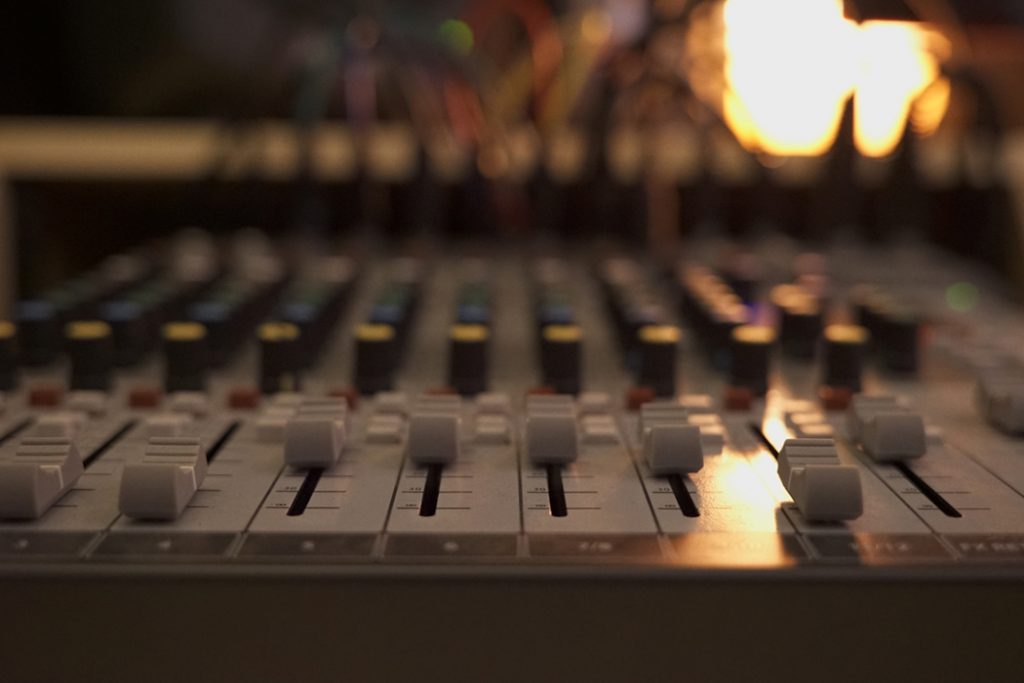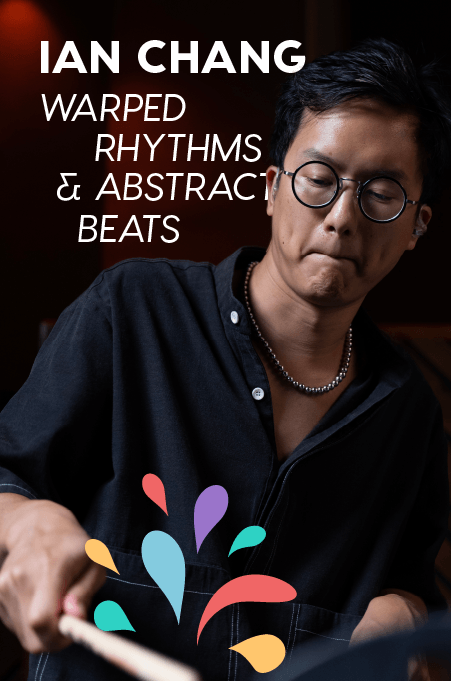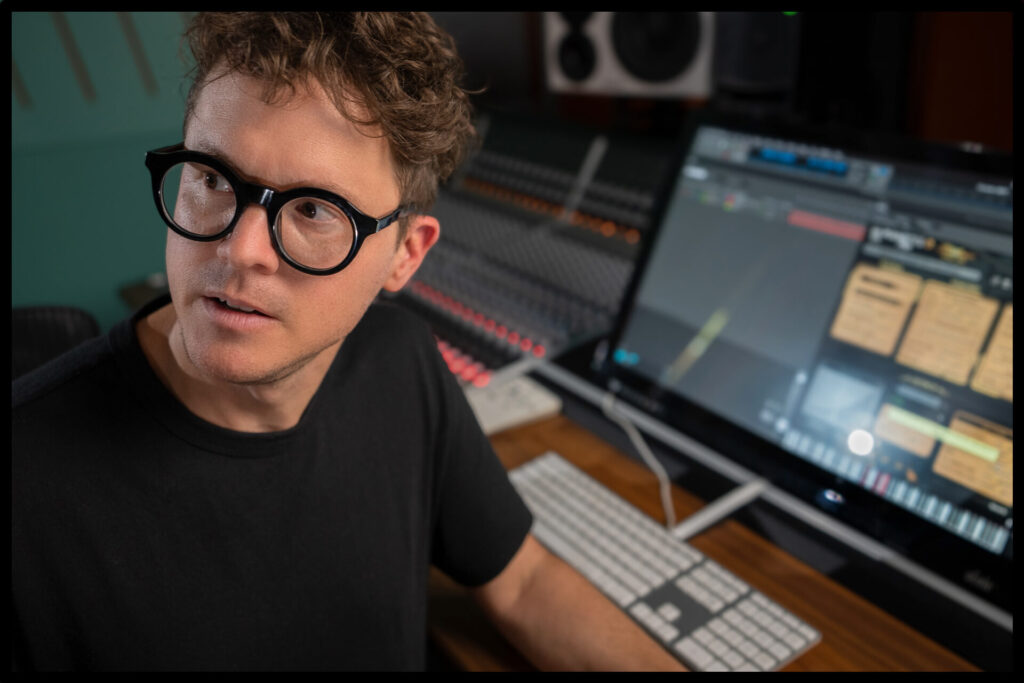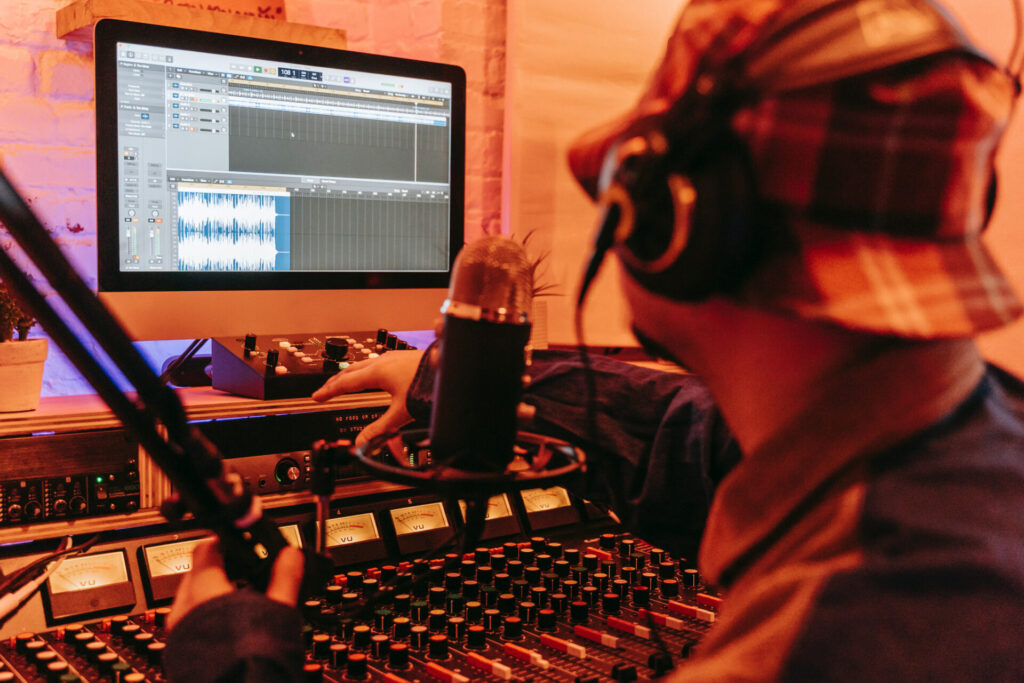
Trying to learn to mix music online can have you wading through a sea of half-baked YouTube tutorials and questionable advice, and can leave you ready to throw your computer and half your gear out the window.
Well, struggle no more! Here are three online music mixing courses that you can do in your spare time, that will get you to your music mixing goals, no matter your experience level.
In case you’re new to Soundfly, you can get access to every one of our premium online courses with a monthly or annual subscription. But that’s not all. We offer the ability to work 1-on-1 with a professional musician, composer, producer, singing actor, or industry insider working in the field. It’s like having a personal trainer, but for music!
Whether you decide to do a six-week course-based mentorship session (which you can apply for inside the courses) or a four-week, customized, and goal-oriented session based on your personal project (which you can apply for using this Typeform), we’ll help you pursue your musical dreams.
Either way, Soundfly’s courses are interactive, practice-based, and inspirational, and best of all, since they’re entirely digital, you can work from anywhere, on your own schedule. If you’re a music producer who is eager to enhance your knowledge and mixing skills, practice your chops, and build your portfolio of work, we definitely have an online course for you.
But which one is the right one? Let’s explore the options!
Intro to Making Music in Logic Pro X
What is this course all about?
Instructed by composer and producer, Martin D. Fowler (This American Life, Limetown, etc.), this course is an all-encompassing bootcamp in one of the most widely-used and most multi-functional DAWs out there, Logic Pro X. It’s used by pro-level producers, songwriters, engineers, and composers of all types to achieve the sound they’re searching for. Here are Fowler’s personal reasons why, no matter what genre of music he’s producing, he always comes back to Logic.
This course will get you composing, recording and editing both audio and MIDI, manipulating effects, and mixing in Logic Pro X fluidly. You’ll get comfortable navigating around the environment and using Logic’s many features to express yourself creatively, while creating a consistent body of new work.
Who should take this course?
Any home recording musicians, producers, or instrumentalists who are new to working in DAWs, generally, and want to get up and running making music in Logic Pro X, regardless of style and genre.
This course isn’t mixing-specific, but it will touch on mixing as part of a more holistic music-making process. So it’s ideal for someone who wants to get started producing music in a DAW. You’ll need a copy of Logic Pro X to get the most out of the course.
How much do I need to know about mixing?
Nothing at all. This is the most beginner option on the list. People who are entirely new to production will feel at home here, as will those with a bit of knowledge but who are new to Logic.
What will I be able to do by the end?
It’s right there in the title — you’ll be able to make music in Logic Pro X! By the end of this course, you’ll be comfortable writing and editing complete tracks in Logic. You’ll be exposed to the fundamentals of mixing music, but you’ll still want to work with a mix engineer (or take one of the higher level courses below) to get your tracks to a professional level.
Preview Intro to Making Music in Logic Pro X for free here.
Faders Up I: Modern Mix Techniques
What is this course all about?
The first in our two-course series exclusively focused on mixing, Faders Up I: Modern Mix Techniques takes a macro-lens approach to the mix process, so you’ll get a well-rounded knowledge of every basic parameter used to create professional-sounding audio tracks, such as: referencing, panning, routing, signal flow, EQ, compression, reverb, and much more. You’ll also learn ear training exercises to make sure you’re hearing your mix correctly and responsibly, and if you opt to work with a mentor, you’ll come away with priceless advice and insight on your personal work process.
This course is instructed by 9 top sound engineers from around New York City who have worked with artists such as Beyoncé, D’Angelo, Solange, Sia, Mark Ronson, the New York Philharmonic, the Dirty Projectors, and many more, and it’s navigated by our in-house hip-hop producer Nyle Emerson.
Who should take this course?
Anyone who’s ready to take a deep dive into the world of mixing. You should be aware of mixing’s role in the music production process, but you don’t need to know anything about how to mix, yourself. You should be able to record audio at home and/or comfortable creating audio in a DAW. Once again, you can be a practitioner of any style of music, and you should get super excited when someone gives you a new song to listen to. Unlike the Logic course above, in this course, you can work in your DAW of choice.
How much do I need to know about mixing?
For this course, you really just need to know enough about mixing that you know you need to learn more. If you’ve ever struggled to communicate with a mix engineer in order to get the sound you’re looking for, or listened to your own tracks and been unable to pinpoint exactly what you need to do to improve your sound, this is the course for you.
What will I be able to do by the end?
You’ll be able to create working mixes of your own music, as well as being able to communicate confidently with professional mix engineers on how to get the best sound out of your music.
Preview Faders Up I: Modern Mix Techniques for free here.
Faders Up II: Advanced Mix Techniques
What is this course all about?
The second and more advanced course in the Faders Up series, Advanced Mix Techniques is structured quite differently from the first. Here, you’ll get 4 sound engineers’ input, but the insights will be much more tightly focused, both on their personal sound-crafting techniques and the tried-and-true techniques that pertain to certain genres specifically (hip-hop, rock and metal, pop, and cinematic orchestral). And for free, we threw in an entire lesson section on the basics of mastering.
The four highly influential course instructors are: Kenta Yonesaka (Unlocking the Truth, Kendrick Lamar, Chance the Rapper), Tim Leitner (Carly Simon, Adam Ezra, Billy Joel), Brian Losch (Maria Schnieder, Yo-Yo Ma, Chris Thile), and Leon Kelly (Run the Jewels, Kaytranada, Action Bronson).
Who should take this course?
Anyone who wants to create professional-quality mixes of their own music, or who aspires to be a professional mixing engineer and is looking for a way in. In this course, you’ll actively work on mixes in four different genres, getting you ready to mix any style of music you’re likely to encounter.
How much do I need to know about mixing?
Faders Up II is designed for producers with some hands-on mixing experience who are looking to expand their arsenal of skills and approaches, especially when it comes to working with a larger variety of artists and clients. You should be ready and excited to get your feet wet working on a set of audio tracks provided by the course (and that you bring in yourself).
What will I be able to do by the end?
You’ll come out with a small portfolio of finished mixes and feel confident taking on mixing projects regardless of genre.
Preview Faders Up II: Advanced Mix Techniques for free here.
Good luck on your audio mixing journey! If you have any questions, or just want to make sure you’re buying the right online course, feel free to get in touch with us at [email protected].



